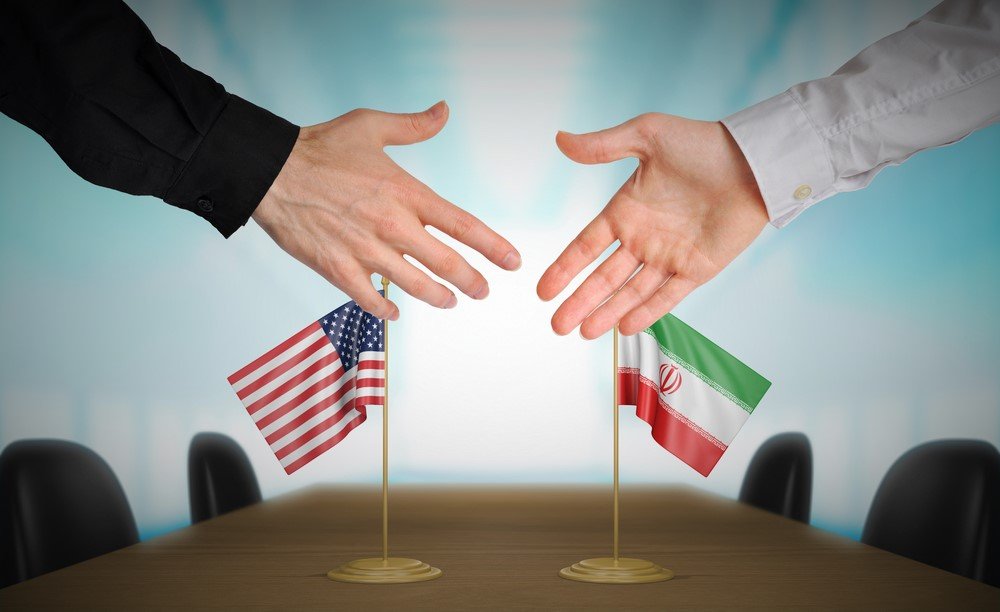
[dc]T[/dc]his morning, Democrats in the U.S. Senate announced that they have the 34 votes necessary to uphold the President’s expected veto if Congress, as expected, passes a resolution disapproving the Obama administration’s deal with Iran. The international agreement is supposed to result in a dismantling of the Iranian nuclear program in return for lifting of sanctions, but given the Iranian leadership’s ongoing theme of “death to America” and “death to Israel” the deal certainly does not signify a sense of international friendship. The deal involves Iran, the United States, Britain, France, Germany, Russia, and China and has been endorsed by the U.N. Security Council.
I have been very skeptical of the negotiations, which were largely held in secret, and the long-term effects are not yet known. But in this brief note, since the deal is effectively sealed in place, I hope to at least take a look at the rationale for the treaty and how it could achieve some positive goals if it works according to plan.
Sanctions against Iran have been in place since 1979 when President Jimmy Carter took Iranian property in the U.S. after a mob took 60 hostages from the U.S. Embassy in Iran. Sanctions continued after Hezbollah, backed by Iran, bombed a Marine compound in Beirut resulting in the deaths of 241 Americans. President Ronald Reagan identified Iran as a “State Sponsor of Terrorism,” which banned arms sales and foreign assistance to Iran. (The Belfer Center for Science and International Affairs at the Harvard Kennedy School has posted an excellent report on the history of the sanctions against Iran.)
In 1995, further sanctions were imposed banning U.S. investment including in oil and forbidding export of American goods to Iran. These bans will remain in place with some exceptions for “civilian aircraft” and some luxury items. The deal is expected to impact the European Union more than the U.S. as the EU will engage in more direct commerce. The EU will open finance, banking, insurance, oil and gas, shipping and transport, and other sectors. It will also unfreeze Iran’s financial assets. An embargo on exporting arms to Iran will remain for five years and missiles for eight years. In return for the arms agreement, Iran agreed not to design and test warheads.
According to Graham Allison, Director of the Belfer Center, in an essay published on August 15, 2015, after the U.S. crippled Iraq, Iran became the primary regional power in the Gulf, sanctions were simply no longer working, and there was no other power capable of holding Iran in check. By opening trade with Iran, the idea is that an environment of free trade will eliminate the enforced isolationism and ultimately create a more open society. At the same time, Iran and Israel can and should work out a side deal for the military protection of the region in the event that Iran violates the agreement.
In my view, the Obama administration is trying to do away with sanctions as a primary method of controlling the actions of international enemies of the U.S. Last month the U.S. began the process of removing trade barriers to Cuba and we are now seeing the same thing in Iran. Despite the idea at their inception that sanctions would force the dictators to their knees and encouraged an embrace of democracy among the citizenry, the Castro regime and the Ayatollahs have kept their power for decades by hoarding their remaining resources and the citizens have been the ones to suffer. The governments then blame the resulting poverty on the West. By opening trade and theoretically re-introducing financial prosperity, there is the possibility that the West could capture the hearts and minds of the people. We shall see.
That’s the economic side. Now to the military side. While I remain skeptical of the provisions of the Iranian nuclear deal, particularly when it comes to arming Iran, with the rising specter of the threat of ISIS, which overran relatively secular Iraq following the removal of Saddam Hussein, a more measured economic approach for introducing financial freedom while keeping power structures in place to keep ISIS at bay may be a better, albeit imperfect, option. If Iran decides to violate the nuclear testing agreement after the sanctions have been lifted, the sanctions will bounce back into place and the new sanctions would impact the next generation of Iranian citizens much more than the decades-old sanctions to which they have become accustomed. The fact that Iran will face a much more hostile U.S. administration if Republicans are elected should encourage Iran to abide by the Obama deal to the letter.